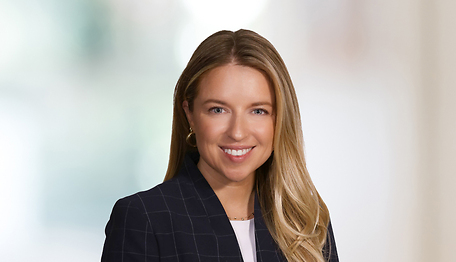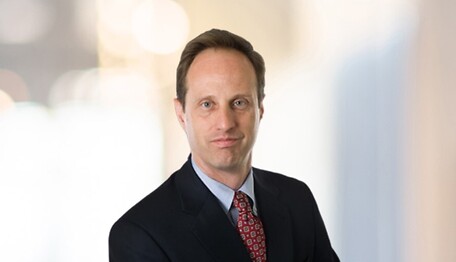Successor Liability in the Pandemic Era
If the 2008 recession gives us the ability to predict anything about upcoming trends in commercial litigation, it is that healthy companies, which normally would not be targeted as defendants, will be sued because the primary wrongdoers are judgment proof. Businesses that are owed money from defunct companies are unlikely to accept substantial losses without exploring ways to collect their debt from third parties, whose liability may not be readily apparent. Under the law of most states, there are a variety of legal theories that can be used to potentially recover from third parties. Successor liability is one such theory.
The well-known general rule is that a company that buys a business through an asset sale — as opposed to a stock sale — cannot be held responsible for the debt of the selling company. But like every general rule, there are exceptions. Although the law may vary somewhat from state to state, generally speaking, companies that purchase the assets of other companies can be held liable for the debt and liabilities of the selling companies if:
- the purchaser explicitly or implicitly agrees to assume liability;
- the sale of assets amounted to a consolidation or de facto merger;
- the purchasing company was a mere-continuation of the selling company;
- the transaction was fraudulently entered into to escape liability; or
- the transfer was without adequate consideration and no provisions were made for the creditors of the selling company.
De Facto Merger and Mere-Continuation Theories
Of these exceptions to the general rule, the de facto merger and mere-continuation theories are probably the least understood and the most problematic to businesses hoping to avoid being held responsible for the debt of another. Generally speaking, under most states’ laws, a de facto merger occurs when:
- there is a continuation of the enterprise of the seller corporation so that there is a continuity of management, personnel, physical location, assets, and general business operations;
- there is a continuity of shareholders that results from the purchasing corporation paying for the acquired assets with shares of its own stock, resulting in the shareholders of the selling corporation becoming a part of the purchasing company;
- the seller corporation ceases business in its ordinary operations, liquidates and dissolves as soon as legally and practically possible; and
- the purchasing corporation assumes those obligations of the seller ordinarily necessary for the uninterrupted continuation of normal business operations of the seller corporation.
In examining these factors, a court must examine the substance of the transaction to ascertain its purpose and true intent. The mere-continuation doctrine has many of these same factors, but emphasizes the purchasing company holding itself out to be the continuation of the selling company.
Flexible vs. Rigid Approaches to De Facto Merger and Continuation Theories
Whether a party prevails in prosecuting or defending a successor-liability case will likely depend on the law of the state that controls the dispute. Many states employ a flexible approach to determine whether the sale of a business through an asset sale should be considered a de facto merger, examining whether it was the intent of the purchaser to absorb the debt and continue the operation of the seller. Other states, most notably Delaware, also look at the transaction as a whole but employ standards that inherently result in a more rigid approach to deciding whether the purchaser of a business’s assets is liable for the seller’s debt. But irrespective of what state’s law controls, successor liability is largely a fact-driven determination.
To better understand the de facto merger and mere-continuation theories of successor liability, the facts of the Fizzano Brothers Concrete Products v. XLN, Inc. case are instructive. In that case, plaintiff Fizzano Brothers Concrete Products, Inc. (Fizzano) licensed accounting and manufacturing software from System Development Group, Inc. (SDG). Fizzano paid substantial money for the software license, software implementation, and training with the expectation that the software would improve its ability to track sales, manage accounts receivable, and improve record keeping. However, Fizzano was never able to use the software. Sometime thereafter, SDG sold all of its stock and assets to XLN, who Fizzano sued for breach of contract and express warranties. Subsequently, XLN entered into an asset purchase agreement with XLNT, which purchased substantially all of XLN’s assets and obtained control over the software originally licensed by SDG to Fizzano.
As a mere purchaser of assets, XLNT argued that it was not legally responsible for Fizzano’s claim because it had not expressly assumed XLN’s potential liability to Fizanno, an argument that is consistent with the general rule that there is no successor liability where a business is sold through an asset sale. But the Pennsylvania Supreme Court applied the de facto merger and mere-continuation theories of successor liability to find that XLNT was liable to Fizzano.
According to Pennsylvania’s Supreme Court, the de facto merger doctrine should not be rigidly applied to the facts of a case. In particular, the Supreme Court ruled that the “continuity of ownership” test did not require that XLN and XLNT have common shareholders, something that seems counter-intuitive. However, the court looked at the elements of a statutory merger under Pennsylvania’s Business Corporation Law and ruled that a merger or consolidation can occur not only when shares are exchanged for shares, but also when shares are exchanged for “obligations.” Thus, because two of the former owners of SDG controlled the software at issue and received promissory notes, the Supreme Court considered there to be continuity of ownership.
The Pennsylvania Supreme Court’s conclusion was bolstered by other facts, which fulfilled the elements of the de facto merger doctrine. SDG, XLN and XLNT all conducted business out of the same location. They serviced the same customers; XLNT acquired XLN’s customer list; XLN went out of business; and XLN entered into a non-compete agreement with XLNT. XLNT hired XLN’s sole remaining employee and had control of XLN’s accounts receivable. Moreover, XLNT’s website stated that it was XLN’s successor. Based on all of these facts, the Pennsylvania Supreme Court decided that XLNT, which merely purchased assets from the successor company that licensed the software to the plaintiff, was liable to Fizzano for breach of contract.
Courts in other states have also adopted a flexible approach to determine whether an asset sale results in a de facto merger or the mere continuation of the seller’s business. Notably, New York and New Jersey follow the approach of looking at the entirety of the transaction to determine whether it was the parties’ intent for the purchaser to absorb the seller’s debt and liabilities and continue the seller’s operations. In these states, it is also not necessary to prove each element of the test to establish a de facto merger or continuation. Delaware, however, employs a more rigid approach, which makes it more difficult for creditors to prove that a purchaser of assets should be held liable for the seller’s debt.
Conclusion
Whatever the benefits of using a flexible de facto merger/mere-continuation test, one thing is certain: businesses buying troubled companies face potential litigation for the debt of the selling company that they may never have contemplated assuming. Moreover, businesses that are owed money from a defunct company may have the ability to argue that a purchaser of the defunct company’s assets must pay that company’s debt. Of course, the final determination of whether a purchasing company is liable for a defunct company’s debts will depend on the facts of each particular case. Short of buying the assets of a defunct company’s business out of bankruptcy or at a foreclosure sale, under Pennsylvania law there is risk that the debt of a former company will attach to the new business. Skilled business lawyers will consider and attempt to draft around these issues. But with a faltering economy and obvious avenues of recovery being foreclosed, more and more companies will seek to recover from third parties through the de facto merger and mere-continuation theories of successor liability.
If you have questions or would like further information, please contact Thomas B. Fiddler (fiddlert@whiteandwilliams.com; 215.864.7081), Morgan S. Birch (birchm@whiteandwilliams.com; 215.864.7188) or another member of our Commercial Litigation Group.
As we continue to monitor the novel coronavirus (COVID-19), White and Williams lawyers are working collaboratively to stay current on developments and counsel clients through the various legal and business issues that may arise across a variety of sectors. Read all of the updates here.
PRACTICE AREAS
Practice Areas
KEY ATTORNEYS
-
Counsel
-
Partner


